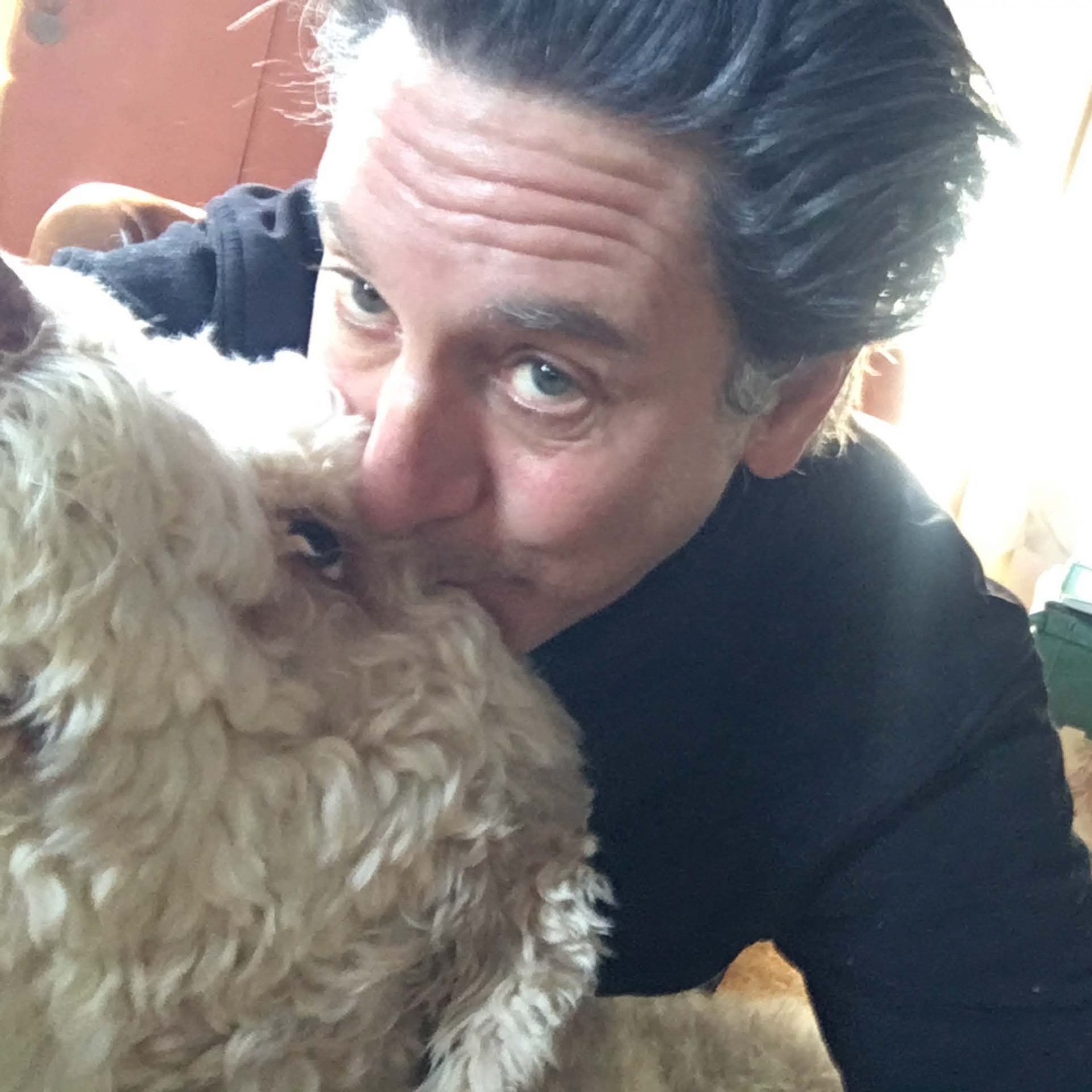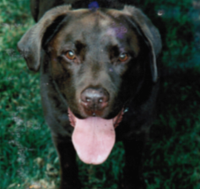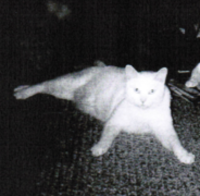This is Fanny and me. We, or I guess she really, are now in the fourth week after her CCL operation almost to the day that her other knee was operated on a year ago. Both by the wonderful, magical, and caring Dr. Haroush. Last year, pre-pandemic, with a looming scare, a big price tag and months of rehab in front of us, Dr. Haroush, Jose and the rest of this magnificent team treated us immediately, helped us in more way we could count all with the kindest and most knowledgeable of treatments. Fanny felt like it was another home and we felt like we were welcome to be as neurotic as we could be about our dog. She healed up quickly and then like clockwork which Dr. Haroush said might happen, it did again, the other knee. Now it was even worse with the Pandemic in full swing, money really tight, time tighter, it felt so huge and totally overwhelming. Did Dr. Haroush come to the rescue? He certainly did. Again, she is healing nicely, we are healing along with her and I would never send her to another vet as long as she lives. Dr. Haroush and team are spectacular in their wisdom and care. Along with treating Fanny it was like he was treating me for all the insanity we are all feeling right now. Everyday and beyond the care was present. And most of all Fanny feels loved and taken care of. What more could you ask for. I wish it was all this simple.
Traveling with your pet – both domestically and internationally – takes special planning and preparation. Be sure to check with your destination for any special pet requirements well in advance of your trip, and call us to schedule time for any necessary paperwork, examinations, or testing prior to your departure.
Domestic Travel
Requirements for domestic air travel within the Continental US usually include vaccination certification and a current health certificate, which can be completed by any Veterinarian on staff. Airlines generally require certification to be completed within ten (10) days of departure. Check with your airline for specific requirements.
International Travel – USDA Certificate
There are a few steps involved with travelling internationally with your pet. Do your research and plan ahead. Each country is unique and requirements change. Most countries require special documents which must be completed by a USDA-accredited veterinarian. Contact your destination’s consulate or embassy for the most current requirements.
Most of the time, these requirements are simple to fulfill, but other times it is fairly complex. Once you have a list of the specific requirements, schedule an appointment with one of the USDA-accredited veterinarians at Animal Health Center. Bring your pet, your pet’s medical records (if not a current client), and all of the required forms.
The USDA-accredited veterinarians at ANIMAL HEALTH CENTER will review the forms, carry out the necessary tests, perform any necessary pre-travel treatments, and complete the required forms for you. We handle regular and expedited domestic/international export. Not every veterinarian on staff has USDA accreditation, so ask to see the appropriate USDA-accredited veterinarian when you make an appointment.
Requirements at foreign destinations may include:
• Specific health certificate documents for a particular country
• Proof that vaccinations are current
• International Microchip Identification, which may be either a 10- or 15-digit microchip, depending on the country’s standard
• Blood tests for infectious diseases and rabies titers that are below or above a minimum level
• Treatments for external and internal parasites given within a day or two of travel
• Completion of tests or procedures as long as 6 months prior to travel
• A certificate of acclimation and a health certificate for the airline carrier
Because there are hundreds of countries, each with different and often changing requirements, we do not know the requirements for each country. You must contact the authorities of the country you are traveling to and ask them to provide you with the necessary information and forms that need to be completed prior to arrival in their country. Often this information can be obtained on the Internet and printed out to prior to your visit.
General Travel Information
The stress of travel can panic some pets. A leash can help calm the nerves and remind your pet that you are in control even in an enclosed carrier.
If your pet does escape, make sure your most current contact information is attached to your pet’s collar at all times. Should the collar fall off, a registered microchip is an additional identification safeguard.
We recommend always securing your pet with a leash to a collar when not in a the carrier.
We generally do not recommend sedation or tranquilizers for pets that travel. Discuss this with the veterinarian when your pet is examined.
The ANIMAL HEALTH CENTER AT THE VETERINARY VILLAGE wishes you and your pet a safe and happy trip!









